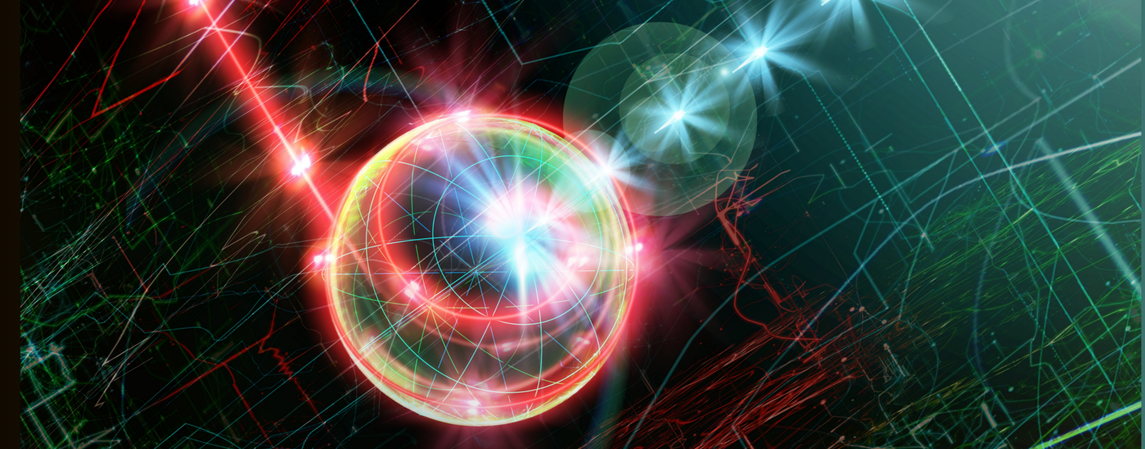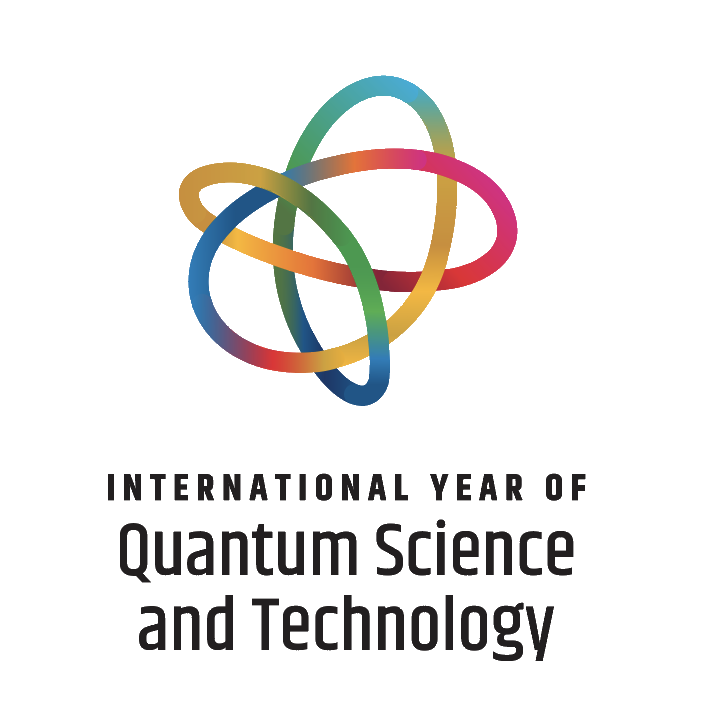
Quantum2025
100 Jahre sind erst der Anfang...
Die Formulierung der Quantenmechanik im Jahr 1925 hat eine bleibende Grundlage für unser physikalisches Verständnis der Natur gelegt. 100 Jahre später, im Jahr 2025, wirkt sich die Quantenmechanik auf alle Bereiche unserer Kultur, Wissenschaft, Technologie und Kunst aus.
Warum scheint die Sonne? Was hält Atome zusammen? Warum tragen manche Moleküle zur Klimaerwärmung bei und andere nicht? Warum sind Dinge magnetisch? All diese alltäglichen Erfahrungen lassen sich erst durch Phänomene der Quantenphysik begründen. Es sind die kleinsten Bausteine der Materie und deren Wechselwirkungen, die große Unterschiede hervorrufen. Dieses Verständnis brachte revolutionäre technische Entwicklungen hervor: LEDs als energiesparende Leuchtmittel, Transistoren als Herzstück unserer smarten Technologien oder die Magnetresonanztomografie als bedeutendes Instrument der medizinischen Bildgebung. Und damit stehen wir erst am Anfang – die aktuellen Entwicklungen der Quantentechnologien werden unsere Welt voraussichtlich ein weiteres Mal grundlegend verändern.
Auf Initiative einer Gruppe von Staaten mit Unterstützung der Deutschen Physikalischen Gesellschaft (DPG) und ihren internationalen Schwestergesellschaften haben die Vereinten Nationen das Jahr 2025 zum Internationalen Jahr der Quantenwissenschaft und -technologie (IYQ) ausgerufen. Für die Umsetzung in Deutschland übernimmt die Deutsche Physikalische Gesellschaft die Federführung. Unter dem Motto „Quantum2025 – 100 Jahre sind erst der Anfang…“ finden verschiedenste Veranstaltungen und Aktivitäten statt, aber auch Mitmachen ist wärmstens erwünscht.
Rückblick auf das Quantenjahr 2025 in Deutschland – ein Feuerwerk von Aktivitäten (YouTube)
Themen und Projekte
Übergreifendes Programm
Quanten in der Forschung und Quantentechnologien
Quanten spielerisch und in der Schule
Quanten in Musik, Philosophie, Kunst und Literatur
Quanten in der Berufswelt, Karriere und Gesellschaft
Der Weg in die moderne Quantenwelt und darüber hinaus
Was geschah 1925?
Hatten die überraschenden Vorschläge von Max Planck (Wirkungsquantum), Albert Einstein (Lichtquanten) und Niels Bohr (Atommodell mit Quantensprüngen) die Notwendigkeit einer Neuformulierung der klassischen Mechanik immer drängender werden lassen. So fand Werner Heisenberg 1925 - in regem Austausch mit Wolfgang Pauli - den entscheidenden Ansatz, aus dem eine Quantenmechanik entwickelt werden konnte. Zusammen mit Max Born und Pascual Jordan gelang es in Göttingen in kürzester Zeit, eine konsistente und anwendbare Theorie zu entwickeln. Ihr stellten sich sogleich die Fassungen von Paul Dirac (Cambridge) und Erwin Schrödinger (Zürich) an die Seite. Die Quantenmechanik ist mittlerweile die experimentell am besten getestete Theorie der Physik.
International Year of Quantum Science and Technology
 Gemeinsam mit Partnern im In- und Ausland hat die DPG die Initiative verfolgt, analog zu so erfolgreichen Wissenschaftsjahren wie z. B. dem „Jahr des Lichts“ von der UNO ein internationales Jahr der Quantenphysik ausrufen zu lassen. Diese Initiative wird von namhaften internationalen Organisationen wie der IUPAP (International Union of Pure and Applied Physics) oder der Meterkonvention unterstützt. Insgesamt beteiligen sich 57 Länder an diesem bedeutenden Jahr, das gleichzeitig die international verbindende Wirkung der Wissenschaft betont. Das International Year of Quantum Science and Technology wurde am 4. Februar 2025 am Sitz der UNESCO in Paris zeremoniell eröffnet. Die internationale Abschlussveranstaltung findet im Februar 2026 in Accra, Ghana, statt.
Gemeinsam mit Partnern im In- und Ausland hat die DPG die Initiative verfolgt, analog zu so erfolgreichen Wissenschaftsjahren wie z. B. dem „Jahr des Lichts“ von der UNO ein internationales Jahr der Quantenphysik ausrufen zu lassen. Diese Initiative wird von namhaften internationalen Organisationen wie der IUPAP (International Union of Pure and Applied Physics) oder der Meterkonvention unterstützt. Insgesamt beteiligen sich 57 Länder an diesem bedeutenden Jahr, das gleichzeitig die international verbindende Wirkung der Wissenschaft betont. Das International Year of Quantum Science and Technology wurde am 4. Februar 2025 am Sitz der UNESCO in Paris zeremoniell eröffnet. Die internationale Abschlussveranstaltung findet im Februar 2026 in Accra, Ghana, statt.



